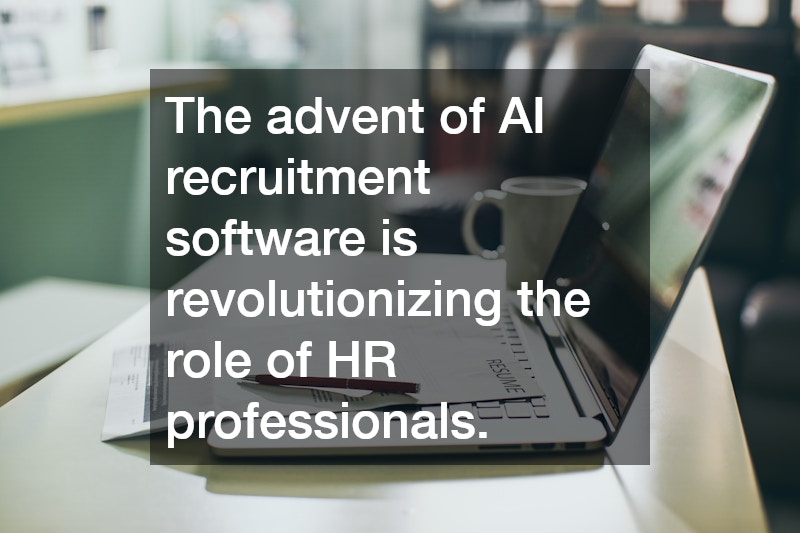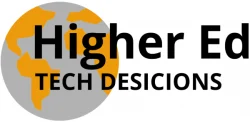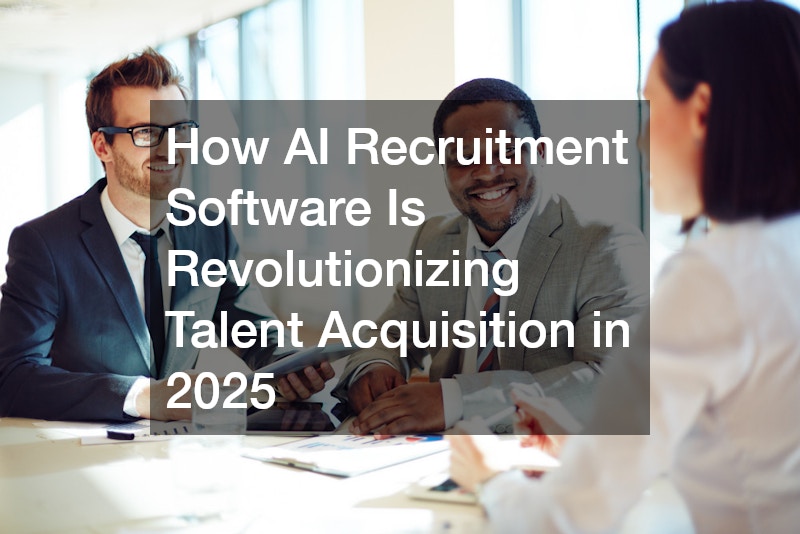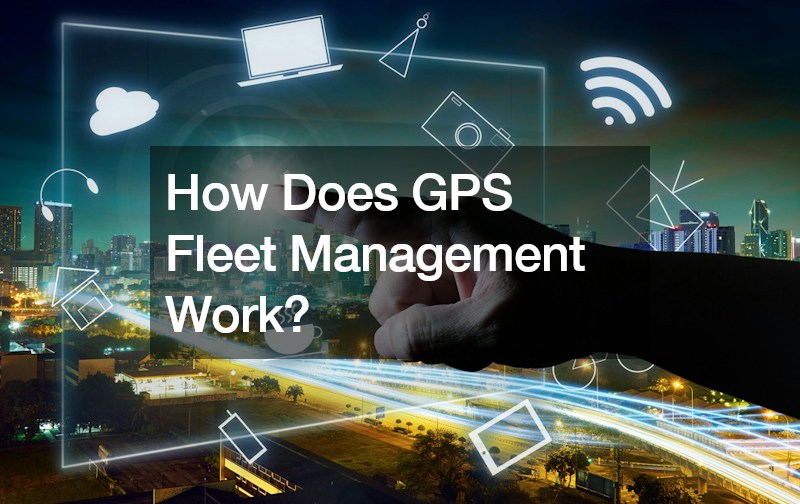How AI Recruitment Software Is Revolutionizing Talent Acquisition in 2025
Currently, talent acquisition confronts numerous challenges, including voluminous applications, candidate bias, and time-consuming hiring processes. With the rising demand for talent, organizations are under pressure to optimize their recruitment practices. AI recruitment software aims to address these challenges, offering innovative solutions such as automated resume screening, predictive analytics, and candidate matching to enhance overall recruitment outcomes efficiently. The future looks promising as technology continues to redefine traditional recruitment operations.
As organizations globally recognize the benefits of AI, the adoption of AI recruitment software is accelerating. This software not only speeds up hiring cycles but also improves the quality of hires by leveraging data-driven insights. By 2025, AI is expected to be deeply integrated into the overall talent acquisition strategy of organizations, fundamentally altering the way HR teams operate and interact with potential candidates.
How Does AI Enhance the Recruitment Process?
AI significantly enhances the recruitment process by introducing efficiency and precision that manual processes struggle to achieve. Automated resume screening, for instance, allows AI-powered tools to sift through vast quantities of resumes rapidly, identifying top candidates based on predefined criteria. This automation reduces human error and bias, ensuring a more diversified pool of candidates. Additionally, AI can parse resumes for specific skills and experiences, tailoring its screening to fit the job description exactly.
Predictive analytics is another game-changing feature of AI recruitment software. It uses data patterns to forecast a candidate’s potential success and adaptability to a role. This predictive capability not only shortens the hiring cycle but also enhances the accuracy of candidate assessments. Companies are increasingly relying on these insights to make informed hiring decisions, resulting in long-term employee retention and satisfaction.
Automated Resume Screening
The sheer volume of resumes received for job openings can be overwhelming for HR teams, creating a bottleneck in the recruitment process. AI recruitment software mitigates this challenge through automated resume screening, rapidly processing applications to identify the most qualified individuals. By allocating computational power to this task, organizations can streamline initial assessments, reducing the strain on human resources and allowing them to focus on strategic activities.
One of the most significant advantages of automated resume screening is the minimization of unconscious biases. Traditional screening processes often contain human biases, which can inadvertently sideline capable candidates. AI, when programmed correctly, offers a more objective evaluation based solely on skills and qualifications. This ensures a fairer selection process, promoting diversity and inclusion within the workforce.
Candidate Matching
AI’s role in candidate matching is pivotal in aligning a candidate’s attributes with job requirements, thus refining the recruitment process. AI algorithms assess various factors such as experience, skills, and cultural fit, offering recommendations that are precisely tailored to both the candidate’s strengths and the company’s needs. This results in higher satisfaction and performance post-hiring, as candidates are more likely to excel in roles that suit their profiles.
The depth of analysis provided by AI-driven candidate matching goes beyond surface-level screening, evaluating nuanced aspects such as soft skills and potential for growth. This comprehensive assessment ensures that candidates who reach the interview stage are genuinely suited for the role. Consequently, this reduces the turnover rate, as placements are made with long-term success in mind.
What Impact Does AI Recruitment Have on HR Professionals?
The advent of AI recruitment software is revolutionizing the role of HR professionals, empowering them to transition from routine administrative tasks to strategic decision-making. By automating mundane responsibilities, AI allows HR personnel to focus on workforce planning, talent development, and organizational culture initiatives. This shift leads to increased productivity and job satisfaction among HR teams.
As AI becomes an integral part of recruitment, the skill set required for HR professionals is evolving. Recruitment experts are increasingly expected to possess competencies in data analysis, AI system management, and digital communication. This evolution highlights the importance of continuous learning and adaptability in an AI-augmented work environment, allowing HR professionals to leverage technological advancements effectively.
The integration of AI in recruitment is also creating new opportunities within the HR field. Positions such as AI recruitment specialists and HR data analysts are emerging, focusing on managing AI systems and interpreting recruitment data. These roles offer career growth for HR professionals willing to embrace AI technologies, illustrating how AI is not replacing jobs, but rather creating new avenues for professional development.
Enhancing HR Efficiency
AI recruitment software enhances HR efficiency by automating repetitive and time-consuming tasks that often bog down recruitment teams. Tasks such as sending emails, scheduling interviews, and tracking applicant statuses can be effortlessly managed by AI, freeing HR professionals to concentrate on more valuable activities. This optimization not only boosts operational efficiency but also improves team morale, as HR personnel can engage in more impactful work.
The time saved through automation translates into a competitive advantage for organizations. Enhance HR teams can focus on refining talent acquisition strategies, nurturing relationships with potential hires, and developing comprehensive onboarding processes. These strategic endeavors elevate the overall candidate experience, positioning the organization as a desirable employer.
Skill Development
As AI reshapes recruitment practices, HR professionals must develop new skills to maximize their capabilities within AI-augmented environments. Mastering data literacy is paramount, as the ability to interpret analytics and generate actionable insights becomes increasingly vital. HR experts are expected to understand AI functionalities and their applications to optimize recruitment outcomes effectively.
New Opportunities
The incorporation of AI into recruitment processes is paving the way for new and exciting opportunities within the HR domain. Roles such as AI recruitment specialists are emerging, focusing on optimizing AI tools to streamline recruitment efforts and enhance candidate experiences. These positions offer HR professionals a chance to spearhead innovative recruitment strategies that capitalize on AI capabilities.
Moreover, data-driven positions within HR departments are gaining prominence. HR data analysts are tasked with interpreting recruitment metrics and providing insights that inform strategic decisions. These roles are critical in shaping data-centric recruitment approaches, allowing organizations to refine their talent acquisition strategies based on empirical evidence and trends.
Conclusion
In conclusion, AI recruitment software is not merely a tool but a catalyst for transformation in talent acquisition. Its impact is evident in the efficiency and precision it brings to recruitment processes, enabling organizations to secure the best candidates in a competitive landscape. As 2025 approaches, the industry must embrace these technological advancements to remain at the forefront of innovation, preparing for a future that is both AI-driven and human-centric.




